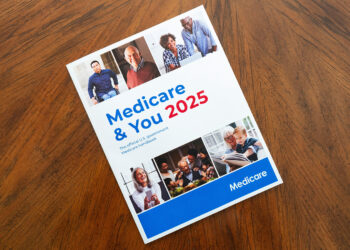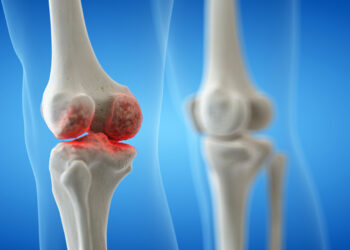Subclinical primary aldosteronism (PA) is associated with increased risks for major cardiovascular problems, even in people with normal blood pressure (BP). The risks are consistent with those observed in overt and classically defined PA, according to the researchers, who published their findings earlier this month in Circulation.
Previous studies that have examined the association between mild forms of renin-independent aldosterone production and cardiovascular health have focused on less concrete measures such as BP, vascular stiffness, and cardiac remodeling, said Gregory Hundemer, MD, MPH, of the Department of Nephrology at the University of Ottawa in Ottawa, Ontario, Canada, who helped conduct the latest research. “We were able to show that these mild forms of dysregulated aldosterone production are linked to a higher risk of hard cardiovascular endpoints, even among a general ‘healthy’ population,” he said.
Study Details
The prospective study analyzed data of 2017 Canadian adults from the randomly sampled CARTaGENE cohort. The goal was to assess the association between subclinical PA and major adverse cardiovascular events (MACEs), which were defined as a composite of myocardial infarction, ischemic or hemorrhagic stroke, hospitalization for heart failure, and cardiovascular death.
The mean age of the study population was 56 years, and most patients (92%) were White. About half (55%) had BP greater than 130/80 mm Hg, and few participants had diabetes (7%) or a history of cardiovascular disease (3%).
Median concentrations of aldosterone and renin were 219 pmol/L (IQR, 163-299) and 7.5 ng/L (IQR, 4.5-11.7), respectively, and the median aldosterone-to-renin ratio (ARR) was 30 pmol/L per ng/L (IQR, 19-50).
Overall, 2.8% of participants developed an incident MACE during a median follow-up of 10.8 years (IQR, 10.6-11.0), according to the researchers. The most common of these outcomes was myocardial infarction, followed by stroke and hospitalization for heart failure. A total of seven participants died of a cardiovascular cause during the follow-up compared with 47 noncardiovascular deaths.
A lower renin concentration (adjusted hazard ratio [aHR], 2.22; 95% CI, 1.02-4.76) and a higher ARR (aHR, 2.43; 95% CI, 1.15-5.12) were both associated with a higher risk for MACE, but no significant association was observed for higher aldosterone concentrations, the researchers found.
Multivariable analysis found that a renin concentration of 4 ng/L or lower was associated with a 2.1-fold higher risk for MACE (95% CI, 1.21-3.72), and an ARR of 70 pmol/L per ng/L or more was associated with a twofold increased risk for MACE (aHR, 2.03; 95% CI, 1.09-3.80).
People who met both of those criteria — about 21% of the study population — were about 2.4 times more likely to experience a MACE (aHR, 2.42; 95% CI, 1.25-6.48), according to the researchers. More than 80% of the participants with an ARR of 70 pmol/L per ng/L or more also had a renin level of 4 ng/L or lower, they added.
All of the associations were found to be independent of BP, they said.
Hundemer said, the proportion of the population with normal BP who go on to develop hypertension is enriched for subclinical PA, and that many cases of hypertension labeled “primary” or “essential” may be aldosterone-mediated hypertension due to subclinical PA.
“We need to move away from the ‘one-size-fits-all’ approach to early hypertension management and toward a more personalized approach targeting the specific mechanisms that drive hypertension and cardiovascular disease for a specific individual,” he said.
Wenyu Huang, MD, PhD, an associate professor at the Division of Endocrinology, Metabolism and Molecular Medicine at the Feinberg School of Medicine at Northwestern University, in Chicago, agreed that the current approach may be missing a significant number of at-risk patients.
“Previously, we only recommended screening for primary aldosteronism in certain patients, and now the [Endocrine Society] guidelines say we should screen everyone with hypertension,” said Huang, who was not involved in the new research. “But this study goes further, as almost half of the participants had normotension. It’s an association study and it doesn’t state causation, but this is something that will need our attention.”
Hundemer and Huang disclosed having no relevant financial relationships.
Paul Basilio is a freelance writer and editor based in Glenside, Pennsylvania.
Source link : https://www.medscape.com/viewarticle/subclinical-primary-aldosteronism-ups-mace-risk-despite-bp-2025a1000jq3?src=rss
Author :
Publish date : 2025-07-25 12:25:00
Copyright for syndicated content belongs to the linked Source.









